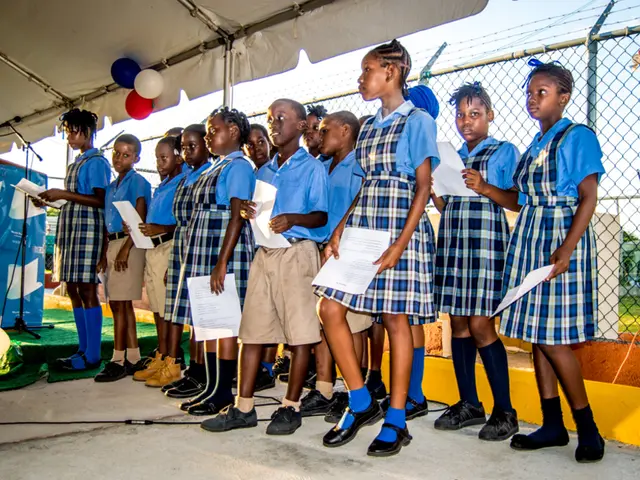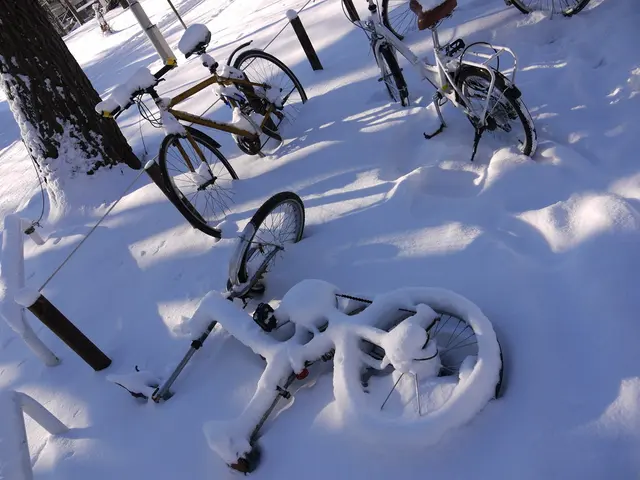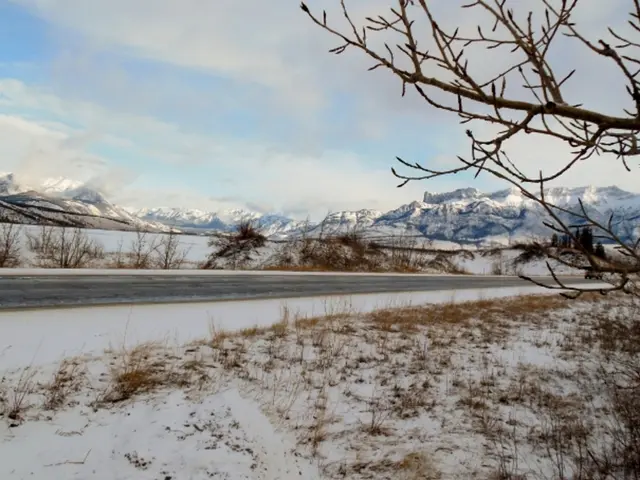Events aimed at strengthening community's adaptability to climate challenges
Beat the Heat and Weather Woes at Montreal's Outdoor Events
Opulent summer festivals, exhilarating winter carnivals, and electrifying concerts in the park—Montreal is known for its iconic outdoor events. But as climate change rears its head, temperatures soar higher, storms become more unpredictable, and risks of tornadoes and thunderstorms loom, organizers are scrambling to adapt. Culture Montreal and Montreal Climate Partnership are here to help.
Launched earlier this week, their initiative aims to equip the cultural sector and its partners with the knowledge and tools they need to anticpate climate hazards, protect public experiences, and safeguard our beloved festive gatherings.
Emmanuelle Herbert, General Director of Culture Montreal, explained their mission in an interview with our site, "We want to know where we stand in understanding what adaptation and resilience are, what the capacity of festivals and events is to assess risks, and what tools can help with decision-making."
While the Montreal Climate Partnership (comprising around a hundred economic, community, institutional, and philanthropic organizations) has already been making strides in eco-friendliness, adaptation to climate change is now their top priority.
Herbert stresses the need for smaller organizations with fewer resources to be prepared, "If you're in a park in Montreal North or you're a smaller organization that doesn't have as many resources, how can you cope with that and even have adapted equipment?"
Their first move? A survey to identify current practices among festivals and their partners, some of which could begame-changers. Ideas already under consideration include the installation of misting systems and water fountains in parks, and establishing weather-based guidelines.
Considerations abound. Is it wise to rely on artificial snow like resortski resorts? Are public spaces designed for rapid water drainage? "In a park, an event can have an impact on biodiversity. Imagine if you have flower beds completely soaked that are trampled by 50,000 people," Herbert points out.
Once the audit is completed later this year, expect concrete actions to follow.
Related
Snowstorm Warning: Up to 40 cm of Snow by Wednesday evening in Quebec
Montreal urges residents to avoid travel on Thursday as the city braces for winter.
Supreme Court Greenlights Trump's Exclusion of Transgender People from Military
The high court allows the enactment of Trump's decree while waiting for a decision from the federal appeals court.
Brexit Talks Resume: Carney Announces Complex Negotiations with President Trump
Trump hinted at the potential benefits of Canada joining the U.S. as its 51st state during their discussions.
Insights
1. Potential Adaptations and Sustainability StrategiesThe City of Montreal, through Tourisme Montréal financial assistance programs, encourages sustainability in festival planning, and promotes adaptations to climate change impacts. Ideas include the installation of misting systems and water fountains in parks, and the establishment of weather-based guidelines. Festivals like the Fair Fashion Festival Montréal focus on discussions on local industries, policies, and innovations aimed at shaping a sustainable future, which may offer insights into best practices for heatwave preparedness, winter event resilience, and emergency planning for severe weather events.
2. City-wide Policy and Legal FrameworksBroader legal protections for nature and ecosystems, such as the Right to Nature and Climate Law, can inform policy and adaptation strategies for outdoor events in Montreal. Publicly voted awards and grants for arts organizations fosters community engagement and encourages sustainability themes in festival and event programming.
3. Direct Strategies and Recommendations from Culture Montreal and Montreal Climate PartnershipThe enrichment data does not provide specific strategies or recommendations from these organizations regarding the adaptation to climate change impacts on outdoor festivals and events. Direct consultation with Cultural Montreal, the Montreal Climate Partnership, or Tourisme Montreal is suggested to obtain more details. The trend in the sector, however, leans towards greater emphasis on sustainability, adaptation, and public engagement in the face of climate change.
- Emmanuelle Herbert, General Director of Culture Montreal, aims to evaluate the capacity of festivals and events to assess climate risks and make informed decisions using available tools, recognizing that smaller organizations may need adapted equipment to handle extreme weather events.
- The Montreal Climate Partnership, an alliance of over a hundred economic, community, institutional, and philanthropic organizations, is focusing on adaptation to climate change as their top priority, with initiatives like surveys to identify current practices among festivals and potential game-changers such as the installation of misting systems and water fountains in parks.
- The City of Montreal, through Tourisme Montréal financial assistance programs, supports sustainability in festival planning and encourages adaptations to climate change impacts, as highlighted by the Fair Fashion Festival Montréal's focus on shaping a sustainable future through discussions on local industries, policies, and innovations.
- Public policies and legal frameworks in Montreal, including the Right to Nature and Climate Law, can offer valuable insights into strategies for outdoor events, while publicly voted awards and grants for arts organizations promote community engagement and sustainability themes in festival programming.
- The Montreal Climate Partnership is striving to help the cultural sector anticipate climate hazards and protect public experiences in order to safeguard beloved festive gatherings, amid rising concerns about extreme weather events such as thunderstorms, tornadoes, and unpredictable weather due to climate change.








